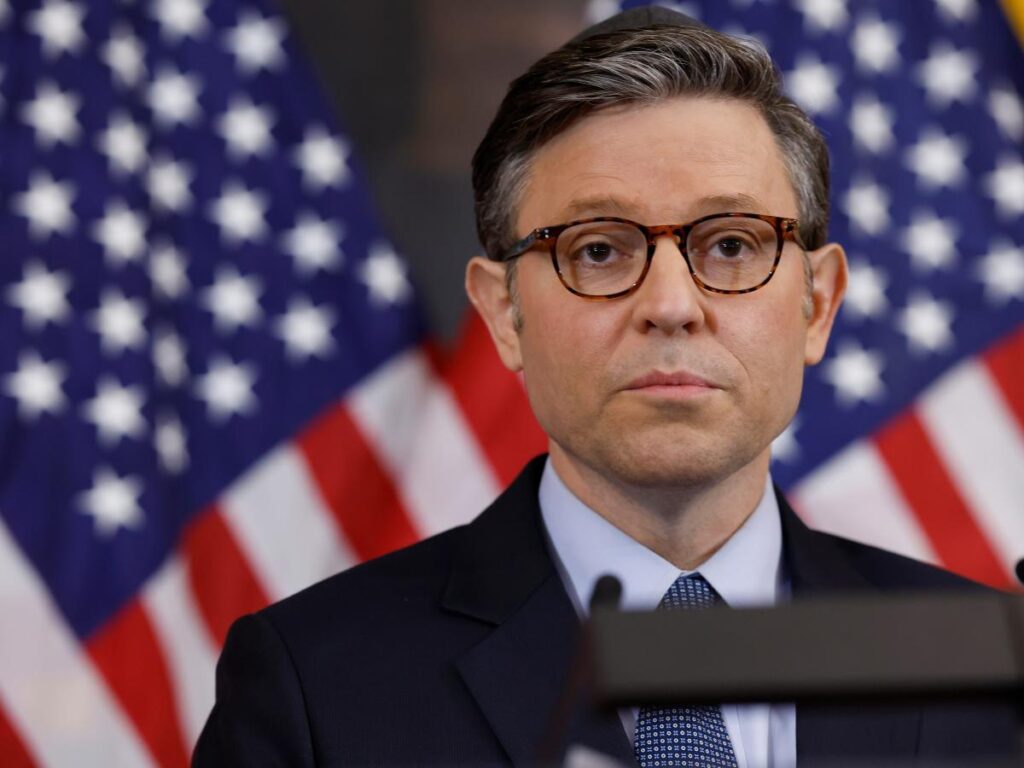In a striking move driven by pressure from tech billionaire Elon Musk, Republicans in Congress decided to withdraw a crucial spending bill designed to ensure government funding until mid-March. This bill, initially seen as a bipartisan effort, was backed by key figures such as House Speaker Mike Johnson. The bill’s sudden collapse comes amidst significant political maneuvering, with Musk taking to social media platform X to announce its demise, claiming, “Your elected representatives have heard you, and now the terrible bill is dead. The voice of the people has triumphed!” His influence has been underscored by his close associations with emerging political figures, particularly his discussions with Johnson and Republican hopeful Vivek Ramaswamy, who are poised to lead an advisory group focusing on reducing government expenditures.
Central to this drama is former President Donald Trump, who actively urged Republicans to reconsider the spending bill. His calls for renegotiation, described as a pressure tactic, were accompanied by threats to Republican lawmakers who might support the bill. Trump condemned any efforts to pass what he termed a “clean Continuing Resolution” without deep negotiations, warning that it could result in a political mess that would affect his administration beginning on January 20, 2025. His remarks stressed the importance of aligning fiscal policy with the anticipated Republican agenda and reprimanded any members of his party who might stray from this directive, highlighting a forthcoming primary challenge for those who dissent.
Trump’s pronouncements coincided with a robust response from Democratic lawmakers who accused him and his allies of obstructing necessary legislation to further their political goals. The Biden administration, too, criticized the efforts, suggesting that the rejection of the funding legislation added unnecessary chaos and instability at a time when many families depend on government services. White House Press Secretary Karine Jean-Pierre condemned the move, stating that it would adversely impact everyday Americans, particularly those reliant on services ranging from veterans’ benefits to Social Security.
Amidst this political turmoil, some Democrats raised concerns about Musk’s growing influence over critical legislative processes. Pennsylvania Senator Bob Casey, who recently lost his re-election bid, expressed alarm over the episode. He characterized the situation as “bizarre, disturbing, and dangerous,” noting the extraordinary impact one individual’s comments could have in shaping Congressional outcomes. This sentiment reflects broader worries among Democratic lawmakers about the implications of corporate influence and individual power in the political sphere, especially in a fast-evolving political landscape.
The rejection of the spending bill not only highlights internal divisions within the Republican Party but also underlines a larger strategic maneuvering in anticipation of the upcoming 2024 elections. With Trump and his allies reinforcing their grip on the GOP narrative, the implications for party unity and legislative action remain uncertain. The ongoing dialogues between prominent tech figures and politicians can signal shifts in traditional power dynamics within Washington, as influential private citizens increasingly shape public policy and party strategy.
As the political clock ticks down to the new administration, the fight over the spending bill represents a critical flashpoint indicating the challenges that lie ahead. With deep divisions within the Republican Party exacerbated by external pressures and a changing political context, the implications for governance and legislative productivity are profound. The fallout from Musk’s influence, coupled with Trump’s direct intervention, raises questions about the capability of Congress to function effectively in a climate characterized by significant individual power and partisan strife. The path forward will undoubtedly require careful navigation of these complex dynamics, with repercussions likely to echo through the next administration and beyond.

